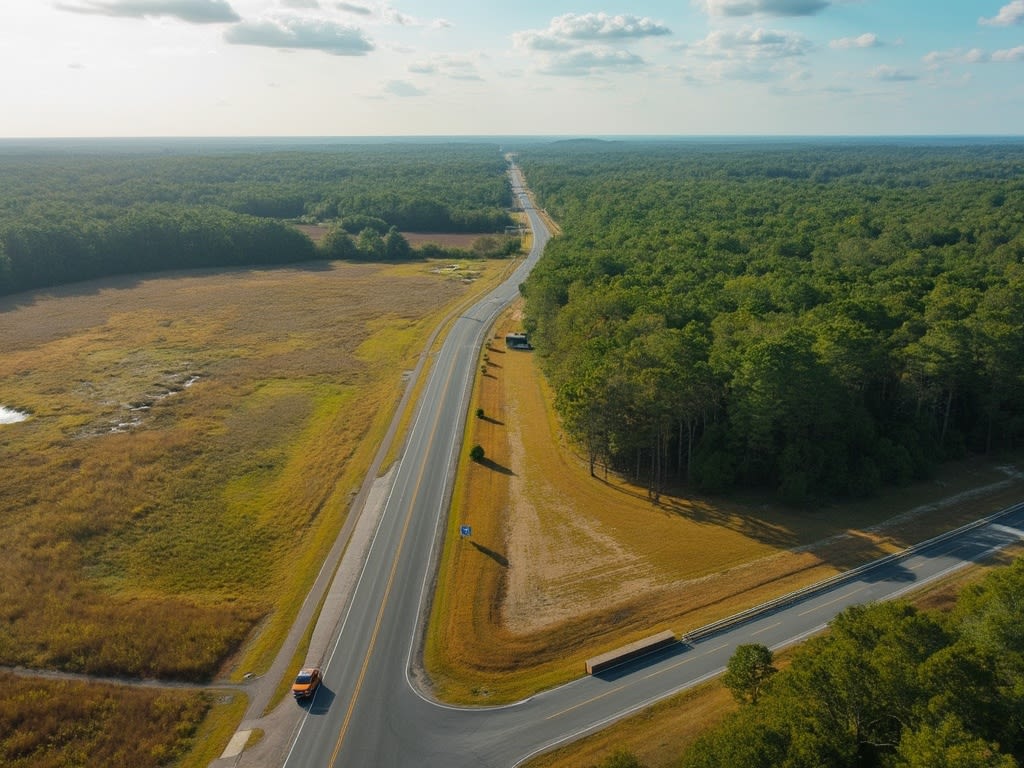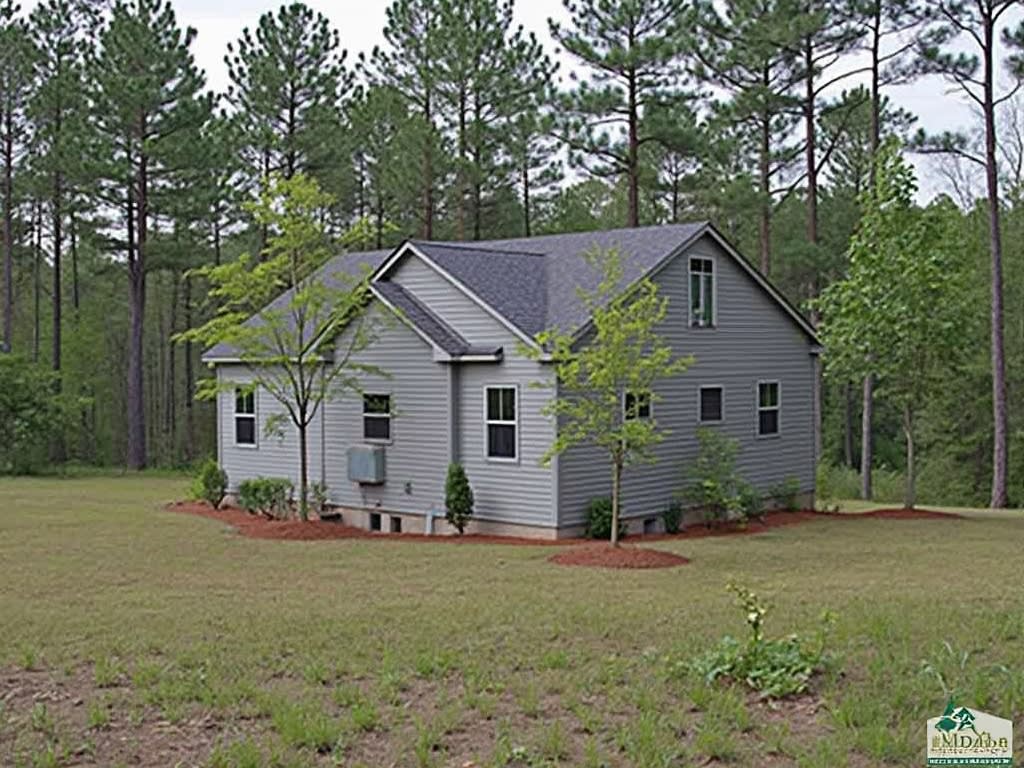Discover exceptional investment value in North Carolina’s land market with prices averaging $20,349 per acre, ranking as the 13th most affordable state for land purchases. Population projections indicate growth from 10.4 million to 15 million by 2040, supported by strong economic advantages including the nation’s lowest corporate tax rate at 2.5% and zero tax on Social Security income.
Key Takeaways:
- Investment choices span mountain properties to coastal regions, creating varied opportunities and proven tourism potential
- Land prices start at $10,000 per acre in many locations, with rural parcels available from $5,000 per acre
- Economic growth stems from Charlotte’s financial sector, Research Triangle’s technology center, and Asheville’s visitor economy
- Income streams can include agricultural leases, hunting rights, solar farms, and cell tower rentals
- Property rights benefit from low property tax rates averaging 0.77% with no estate or inheritance tax
The Booming North Carolina Land Market: A Smart Investment Choice
Population and Economic Growth
North Carolina’s rapid expansion signals prime investment timing. The state’s current population of 10.4 million residents is expected to surge to 15 million by 2040, creating substantial demand for residential and commercial properties.
Investment Opportunities and Pricing
Land prices in North Carolina remain competitive at $20,349 per acre, making it the 13th most affordable state for land purchases. This sweet spot between affordability and growth potential creates multiple investment paths. Here’s what makes North Carolina land particularly attractive:
- Direct access to growing metropolitan markets
- Lower entry costs compared to neighboring states
- Strong appreciation potential in developing areas
- Flexible zoning laws for various development types
- Multiple options for both small and large parcels
These factors combine to make North Carolina land purchases practical for individual buyers and developers alike, with clear paths to value appreciation as the state continues its growth trajectory.
Affordability Meets Prime Location
Budget-Friendly Land Options
North Carolina offers exceptional value for land buyers, with prices starting at $10,000 per acre in many areas. Rural plots present even better deals, available from $5,000 per acre, making land ownership accessible for most budgets.
Economic Advantages
The state’s financial benefits make it a smart investment choice. North Carolina boasts the nation’s lowest corporate tax rate at 2.5%, while retirees benefit from zero tax on Social Security income. Property owners enjoy favorable tax rates compared to neighboring states.
Key economic hubs provide strong investment potential:
- Charlotte’s banking sector drives steady growth
- Raleigh’s Research Triangle fuels tech innovation
- Asheville’s tourism creates steady property demand
- Research Triangle Park generates consistent job opportunities
These factors combine to create solid appreciation potential while maintaining affordable entry points for land buyers.

Natural Beauty and Diverse Landscapes
Terrain and Climate Advantages
North Carolina’s landscape offers exceptional variety for land buyers. The state spans from the Blue Ridge Mountains in the west to the sandy beaches of the Outer Banks, creating unique investment opportunities. I’ve found that 18 million acres of managed forest land provide stable timber resources and sustainable development potential.
Here’s what makes NC’s geography stand out:
- Mountain properties near Asheville and Boone attract tourism and retirement communities
- Coastal regions feature pristine beaches and waterfront development options
- Central farmland zones offer agricultural possibilities
- Four distinct seasons with mild winters and pleasant summers
- Rich natural resources including freshwater access and mineral deposits
The mix of terrains supports diverse property uses, from vacation homes to working farms. Strong tourism in mountain and coastal regions continues to drive property values up, making land ownership in North Carolina particularly attractive for long-term investment.

Income Generation and Development Potential
Multiple Revenue Streams
North Carolina land offers diverse income opportunities beyond traditional real estate appreciation. I’ve found that strategic land purchases can generate steady cash flow through agricultural leases, hunting rights, and grazing agreements. Modern alternatives like solar farm installations and cell tower leases can provide substantial long-term income, often with minimal maintenance requirements.
Development Opportunities
Major economic hubs create excellent development potential for raw land. Durham’s tech sector expansion, Wilmington’s coastal growth, and Asheville’s tourism boom drive demand for both residential and commercial projects. Here are key factors I consider for development potential:
- Access to existing water and power infrastructure
- Distance to major employment centers
- Local zoning regulations and future land use plans
- Road frontage and transportation access
- Population growth trends in surrounding areas
Smart positioning near these expanding cities often leads to significant value increases, especially when paired with proper utility access and favorable zoning.
Investment Stability and Property Rights
Property Rights Protection
North Carolina offers exceptional private property rights protection, making land ownership secure and straightforward. The state allows both domestic and international buyers to purchase property without restrictions. I’ve found that property tax rates remain consistently lower than many other states, letting owners retain more of their investment value.
Growth and Value Benefits
Several key factors make North Carolina land a solid investment choice:
- Zero estate or inheritance tax burdens for property transfers
- Property tax rates averaging 0.77%, ranking among the lowest nationwide
- Steady population influx from other states driving land values up
- Strong appreciation potential backed by economic development
- Clear title processes and ownership documentation
These benefits combine to create reliable long-term investment opportunities across urban, suburban, and rural areas. The state’s sustained population growth, particularly in metro regions, supports consistent demand for residential and commercial land.

Location Factors and Value Drivers
Strategic Positioning and Access
North Carolina’s land value rises sharply near major cities like Charlotte and Raleigh-Durham. Property within 30 minutes of these urban centers commands premium prices while offering quick access to employment hubs. Interstate proximity, particularly I-85 and I-40, boosts investment potential by connecting to regional attractions and amenities.
Physical Features and Development Potential
The terrain shapes both price and usability. Rolling hills and fertile soil in the Piedmont region make ideal spots for residential development or small farms. I find these key elements affect land values:
- Infrastructure access (water, power, internet)
- Distance to schools, hospitals, and shopping
- Soil composition for building foundations
- Zoning restrictions and permitted uses
- Growth corridor location
- Topography and drainage patterns
Local zoning laws heavily influence development options. Rural parcels typically cost 50-70% less than comparable urban lots but may face stricter building limitations or lack essential utilities. The state’s transportation planning can significantly impact future property values in developing areas.


